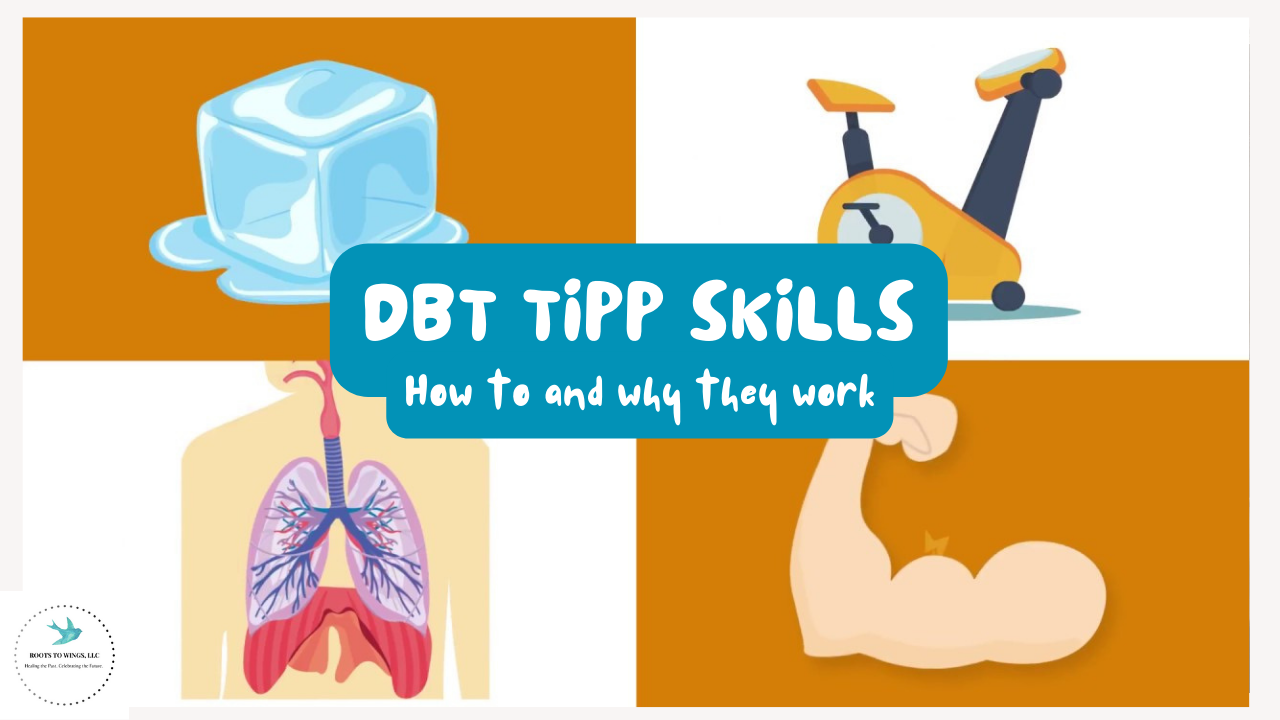By Cassidy Keim, LGPC
The Holiday Season can be stressful, but that doesn’t mean you need to navigate this season without coping skills! Known for helping those who experience intense or frequently distressing emotions, DBT’s TIPP Skills not only can calm our bodies, but help send our brains the neurotransmitters in the moment we need to think and feel differently.
Known as a common set of Distress Tolerance skills in Dialectical Behavior Therapy, these four skill sets use our nervous system’s natural responses to calm our bodies and brains when our emotions feel out of control. Using any of these skills can be helpful in lowering our heart rates, allowing us to then feel more in control and capable of navigating problems we face.
When should you use TIPP Skills?
-When your emotional arousal is VERY HIGH
-You find yourself stuck in your emotional mind and unable to see rational sides of an experience.
-Your brain is unable to process information.
-You are emotional overwhelmed
CAUTION: Ice water like that used in an ice dive decreases your heart rate rapidly. Intense exercise will increase heart rate. If you have a heart or medical condition, lowered base heart rate due to medications, take a beta blocker, or have an eating disorder, consult your health care provider before using these skills.
“TIPP” your body chemistry and lower feelings of extreme emotions quickly using the sensation of TEMPERATURE with an ice dive.
-To perform an ice dive: Holding your breath, put your face in a bowl of cold water (ice water is best, keeping it above 50 degrees F.)
OR , hold a cold pack/ziplock bag with ice water on your eyes and cheek, or splash cold water on your face. Make sure to engage in this skill for at least seconds.
Find Relief with INTENSE Exercise
When our body is fueled with emotion, we can use intense exercise to expend physical energy and provide us with physical and emotional relief.
-Engage in intense aerobic exercise, if only for a short while (10–15 minutes max). Expanding your body’s stored-up physical energy by engaging in any type of exercise or movement that you enjoy and increasing your heart rate.
-Increasing our heart rate during times of intense emotional arousal provides the opportunity to release the uncomfortable energy that intense emotions can cause us to experience. Don’t overdo it, and use another skill in TIPP afterwards to continue to cool down!
Ground yourself and distract your thoughts using PACED Breathing:
-Slow your pace of breathing way down ( to about 5–7 in and out breaths per minute to experience this skill most effectively.)
– Breathe deeply from the abdomen.
-Breathe out more slowly than you breathe in (e.g., 4 seconds in and 6 seconds out).
– Do this for 1–2 minutes to bring down your feelings of emotional arousal.
Check in with your body using PROGRESSIVE Muscle Relaxation:
- Tense and relax each muscle group, head to toe, one muscle group at a time.
- Tense (5 seconds), then let go; relax each muscle all the way.
- Notice the tension;
- notice the difference when relaxed.
- Repeat 3-5 times and follow up with a calming activity
While it can be challenging to incorporate new skills into our daily routines, DBT’s TIPP skills provide reliable interventions to use when our emotions feel too unmanageable to navigate otherwise. Through the use of DBT skills such as these, you will be able to keep your chill this holiday season, and feel a little more relief in the process!
If you would like more information about DBT Cassidy can guide you through the process. Check out her bio here.


Thank you!